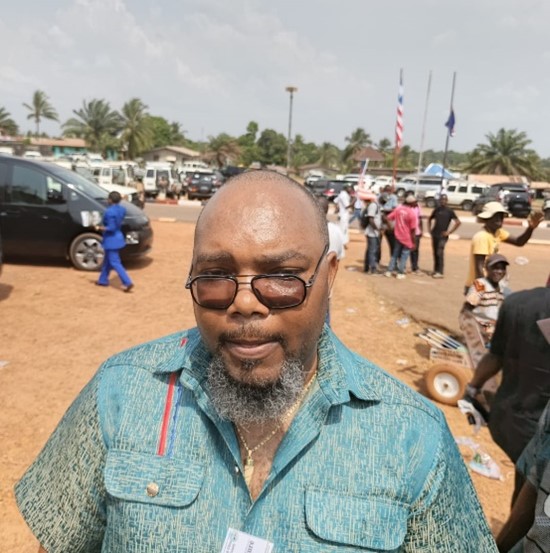Liberia is grappling with a worsening drug crisis, a situation that has sparked serious concern among government officials and citizens alike. Representative Thomas Alexander Goshua of Grand Bassa County has voiced his apprehension about the government’s response to the escalating drug abuse problem, particularly amongst the youth. While acknowledging the government’s public pronouncements on tackling the issue, Goshua points to a stark disconnect between rhetoric and action on the ground. He argues that the lack of effective intervention is allowing the crisis to spiral out of control, potentially jeopardizing the nation’s stability and hindering its development aspirations, including President Boakai’s ambitious “ARREST Agenda for Inclusive Development.”
Goshua paints a grim picture of the current situation, drawing parallels to Liberia’s troubled past. He highlights the alarming growth in the number of disadvantaged youth, commonly referred to as “zogos,” who are often entangled in drug abuse. These marginalized individuals, estimated to number over 40,000, pose a significant threat to community stability and could potentially become a powerful disruptive force, even infiltrating the political landscape to safeguard their interests. The lawmaker underscores the urgent need for a more comprehensive approach to combat drug abuse, including robust awareness campaigns, effective measures to curb drug supply, and empowerment initiatives for caregivers and civil society organizations.
The severity of the drug crisis is further underscored by reports of alarmingly high death rates. Health workers estimate that at least five lives are lost daily due to drug-related complications. This dire situation prompted President Joseph Boakai to declare a “public health emergency” in his first State of the Nation address, acknowledging the “existential threat” posed by drug abuse, particularly the synthetic cannabis known as “Kush.” This highly addictive substance has wreaked havoc among young people in Liberia and neighboring Sierra Leone, with its debilitating effects visible across various socio-economic strata.
President Boakai has pledged to take decisive action, initiating a steering committee dedicated to addressing the crisis. He and Vice President Jeremiah Koung have also committed to undergoing drug testing as a symbolic gesture of their commitment to combating the problem. This public display of leadership and resolve was met with widespread approval. The President emphasized the critical need for a unified national effort to confront this escalating national security risk and safeguard the future of Liberia’s youth. The urgency of the situation is amplified by the criticism leveled against the previous administration for its perceived inaction in curbing the drug scourge.
The pervasiveness of the drug crisis, particularly the widespread use of Kush, underscores the deep-seated societal challenges facing Liberia. The drug’s accessibility and highly addictive nature contribute to its devastating impact on individuals and communities. The visible presence of users, often recognizable by their extreme drowsiness, highlights the urgent need for effective interventions. Addressing this crisis requires a multi-faceted approach, encompassing preventive measures, treatment options, and law enforcement efforts to disrupt the drug supply chain.
The government’s declaration of a public health emergency marks a crucial step in acknowledging the severity of the problem. However, the true measure of success will lie in the implementation of tangible strategies and the allocation of adequate resources to combat the crisis. This includes strengthening existing institutions, supporting community-based initiatives, and fostering international collaboration to address the cross-border nature of the drug trade. The focus must shift from rhetoric to action, with sustained efforts to provide effective treatment and rehabilitation programs for those struggling with addiction. Ultimately, overcoming this challenge requires a collective effort from all stakeholders, including government, civil society organizations, communities, and individuals, to create a drug-free environment and ensure a brighter future for Liberia.














